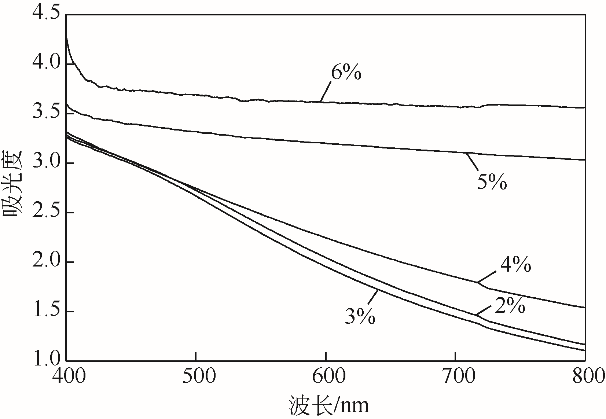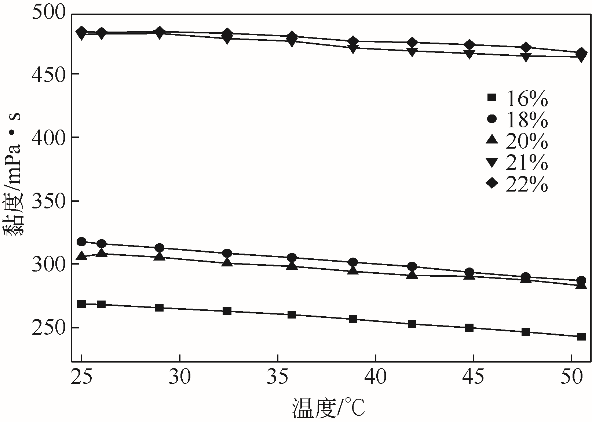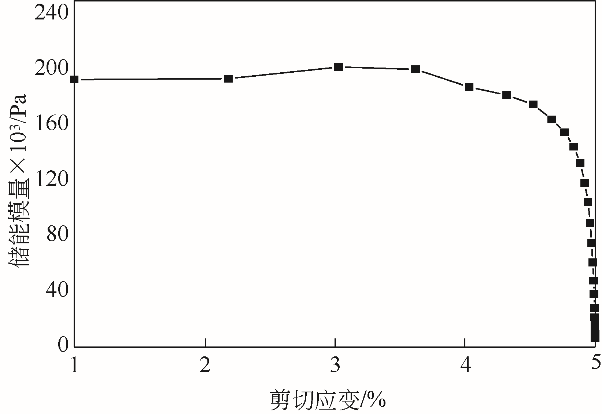| 1 |
PANG C L, LINDSAY R, THORNTON G. Structure of clean and adsorbate-covered single-crystal rutile TiO2 surfaces[J]. Chemical Reviews, 2013, 113(6): 3887-3948.
|
| 2 |
陈新红, 郑少华, 李春. 二氧化钛分散技术研究[J]. 钢铁钒钛, 2016, 37(1): 16-20.
|
|
CHEN Xinhong, ZHENG Shaohua, LI Chun. Technology research on dispersity of titanium dioxide[J]. Iron Steel Vanadium Titanium, 2016, 37(1): 16-20.
|
| 3 |
PERRET D, LOCAT J, MARTIGNONI P. Thixotropic behavior during shear of a fine-grained mud from Eastern Canada[J]. Engineering Geology, 1996, 43(1): 31-44.
|
| 4 |
林嵩, 徐宏, 古宏晨. 纳米TiO2表面电位特性的研究[J]. 材料科学与工程学报, 2004, 22(4): 544-546.
|
|
LIN Song, XU Hong, GU Hongchen. Surface charge properties of nano-titanium dioxide[J]. Journal of Materials Science and Engineering, 2004, 22(4): 544-546.
|
| 5 |
秦伟庭, 沈勇, 张惠芳, 等. 纳米TiO2在水分散体系中的稳定性[J]. 印染, 2006, 32(7): 4-6.
|
|
QIN Weiting, SHEN Yong, ZHANG Huifang, et al. Stability of nano TiO2 in water-based disperse system[J]. Dyeing and Finishing, 2006, 32(7): 4-6.
|
| 6 |
李玲. 表面活性剂与纳米技术[M]. 北京: 化学工业出版社, 2005: 42.
|
|
LI L. Surfactants and nanotechnology[M]. Beijing: Chemical Industry Press, 2005: 42
|
| 7 |
李志军, 王红英. 纳米二氧化钛分散性的实验研究[J]. 广州化工, 2005, 33(6): 26-29.
|
|
LI Zhijun, WANG Hongying. Study on the dispersion behavior of nano-titania powders[J]. Guangzhou Chemical Industry, 2005, 33(6): 26-29.
|
| 8 |
王琴, 白卫东, 魏炎雄, 等. 低浓度聚丙烯酸钠的流变特性研究[J]. 食品工业科技, 2004, 25(5): 108-109.
|
|
WANG Qin, BAI Weidong, WEI Yanxiong, et al. Study on the rheological property of low concentration polyacrylate acid sodium[J]. Science and Technology of Food Industry, 2004, 25(5): 108-109.
|
| 9 |
KIM W W, YOO B. Rheological behaviour of acorn starch dispersions: effects of concentration and temperature[J]. International Journal of Food Science & Technology, 2008, 44(3): 503-509.
|
| 10 |
KOOCHEKI A, TAHERIAN A R, BOSTAN A. Studies on the steady shear flow behavior and functional properties of Lepidium perfoliatum seed gum[J]. Food Research International, 2013, 50(1): 446-456.
|
 ),Qiang LI2,Shixiang ZUO1,Xiazhang LI1,Wenjie LIU1,Fengqin WU1,Chao YAO1(
),Qiang LI2,Shixiang ZUO1,Xiazhang LI1,Wenjie LIU1,Fengqin WU1,Chao YAO1( )
)
 ),李强2,左士祥1,李霞章1,刘文杰1,吴凤芹1,姚超1(
),李强2,左士祥1,李霞章1,刘文杰1,吴凤芹1,姚超1( )
)










